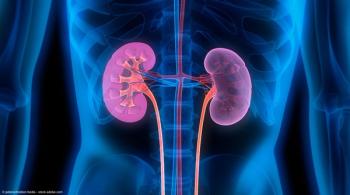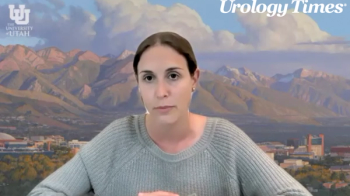
Transgender education exposure low
Few urology residents receive didactic education on gender-affirming care, survey shows.
San Diego-A new survey of U.S. urology residents finds that only 54% have been exposed to education about the care of transgender patients, although more than three-fourths believe that training in sex-change surgery is very or somewhat important.
Another study shows that a large number of graduate-level urology programs offer no didactic or clinical education in transgender issues.
"It seems that the [education] exposure is lower than what it should be, especially with the rise in transgender patients seeking gender affirmation," said Shane D. Morrison, MD, MS, resident in plastic and reconstructive surgery at the University of Washington Medical Center, Seattle, in an interview with Urology Times. "We do not know the effectiveness of the education urology residents are obtaining, but education around this population is less than 1 hour per year.
"Though not all urologists will be treating transgender patients, gender affirmation is becoming more prominent, and a general understanding should be expected."
Dr. Morrison presented the survey findings at the 2017 American College of Surgeons Clinical Congress in San Diego along with the accompanying results of surveys of otolaryngologists and plastic surgeons. Some of the urology results had been published previously in
The number of transgender people in the U.S. is unknown, and there is no overall tracking of sex-change operations, also known as gender-confirmation or gender-reassignment surgeries.
However, a first-of-its-kind
Urologists also perform sex-change operations, and some serve in teams with plastic surgeons.
"With the rise in patients seeking these procedures, it will be vital for urologists to be able to offer safe and appropriate procedures for transgender patients,” said Dr. Morrison, who worked on the study with Jeffrey B. Friedrich, MD, and colleagues.
The authors surveyed 401 urology residents in early 2016, and 289 responded (a 72% response rate).
About half (54%) reported being exposed to transgender educational content, mainly through direct patient interaction rather than didactic education.
Just over three-quarters of the residents described surgical training in gender-reassignment procedures as very or somewhat important.
But the answers varied by gender and region. One-third of the respondents were women, and they were more likely than men (91% vs. 70%, p<.001) to say they believed that kind of resident education is important. By region, 88% of those in the West agreed that it's important compared to just 60%-63% in the South Central, Southeastern, and Mid-Atlantic regions; these differences from the result for the West were statistically significant.
Overall, Dr. Morrison said, "The most surprising results were that most residents had some exposure to transgender patient care, but no didactic education on gender-affirming care."
Next:
In another recent study, published in the Journal of Graduate Medical Education,Dr. Morrison and colleagues surveyed urology program directors about the role of transgender-oriented education in 128 urology programs
"Trainees want to be prepared to offer safe procedures to this population, and that should be a sign to the educational committees that further training in transgender patient care and gender-affirming surgeries are needed,” Dr. Morrison said.
At the American College of Surgeons meeting, Dr. Morrison also presented statistics from surveys of plastic surgery and otolaryngology residents about exposure to transgender patient care. (Otolaryngologists assist with voice therapy and facial feminization procedures.)
Plastic surgery residents were most likely to have been exposed to transgender patient care, followed by urologists and otolaryngologists.
What's next?
"Further studies are needed in this area to determine what should be the standard education on transgender patient care in urology residency or fellowship," Dr. Morrison said.
Newsletter
Stay current with the latest urology news and practice-changing insights — sign up now for the essential updates every urologist needs.






